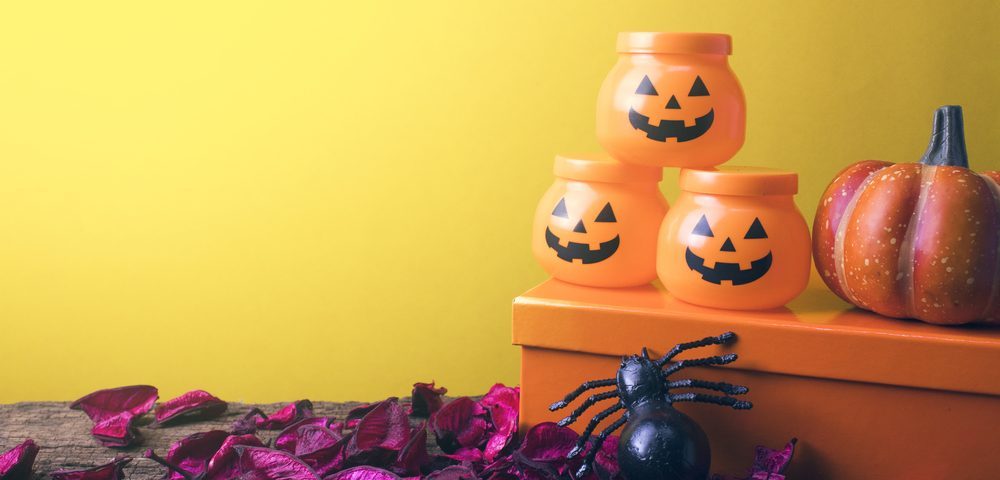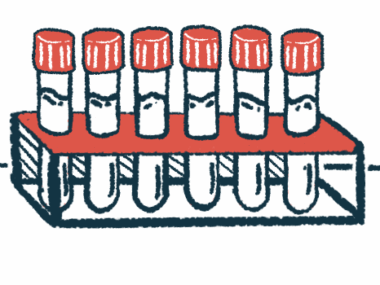Halloween Proved to Be a Treat for Me
Written by |

I’m staying indoors more and more on Halloween. The cold is taking an increasingly large toll on my body. I roll through the neighborhood with the younger members of my family when the weather is unseasonably warm, but that doesn’t often happen in northern Indiana.
Instead, I’ve started passing out candy to the eager trick-or-treaters who show up on our doorstep. I’m sheltered from the brisk wind and can stay warm while waiting for visitors by shutting the door. I have always enjoyed the company of children, so it’s fun to interact with the curious superheroes, princesses, monsters, and other assorted characters who come in search of something sweet.
Each child reacts differently when they see me smiling in my wheelchair, wrapped in a fuzzy blanket with a bowl full of goodies. Some respond with a kind smile as they take in my unexpected appearance. Others don’t seem to notice anything unusual. A few — generally the younger ones — eye me suspiciously as they retreat with their candy.
This year, a couple of visitors caught my attention.
The kindhearted clown
A scary clown worthy of a horror movie made his way up our driveway. Once he arrived, he lifted his mask, revealing a boy about 13 years old. He made small talk as he sifted through the remaining candy, asking how my day was and thanking me for the treats.
Just before he stepped away, he looked at me and said, “I hope you get better.” He said the same thing last year, and I recognized him immediately.
I love that he says it out of compassion and not pity. He seems to recognize that my situation is difficult and genuinely hopes it’ll become easier, which I appreciate.
The not-so-pesky teenagers
Many people think teenagers are too old to go trick-or-treating. It doesn’t bother me at all. I think they should enjoy being kids while they can. And honestly, people should take advantage of free chocolate as often as possible.
This year, a group of teenage boys arrived on our doorstep. I admired how polite and respectful they were. After choosing their candy, they each said, “Thank you, ma’am.”
I’m only 22 years old, so my mom and I giggled about it later. Women my age might be horrified, but I thoroughly enjoyed being called “ma’am”! I’m small, so I look younger than I am. I’m often mistaken for being in my early teens. I might come to appreciate these innocent guesses, but right now, I prefer to be spoken to as an adult, which doesn’t always happen when people think you’re 12.
Those young men recognized I was older than them, and not just by a year or two! They thought I was old enough to be called “ma’am.” Having people recognize and treat me as an adult was a real confidence booster.
The happy lion
At one point, a family with several young children came for some goodies.
The father was carrying a smiling boy dressed as a lion. I suspected he may have had Down syndrome. We tell kids to take two pieces of candy, but this boy ended up grabbing three or four. I was happy to let him take as many as he happened to get, and my mom said she counts candy that way, too.
His father thanked us numerous times before they left, and I could see the gratitude reflected in his eyes. We accepted his son and his challenges. We understood.
It’s amazing how passing comments can have such an impact. I hope those children continue to bless others as they blessed me that night.
***
Note: SMA News Today is strictly a news and information website about the disease. It does not provide medical advice, diagnosis, or treatment. This content is not intended to be a substitute for professional medical advice, diagnosis, or treatment. Always seek the advice of your physician or other qualified health provider with any questions you may have regarding a medical condition. Never disregard professional medical advice or delay in seeking it because of something you have read on this website. The opinions expressed in this column are not those of SMA News Today, or its parent company, Bionews Services, and are intended to spark discussion about issues pertaining to spinal muscular atrophy.







Leave a comment
Fill in the required fields to post. Your email address will not be published.